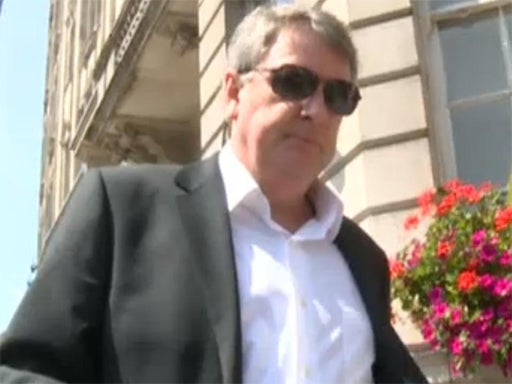Google is a good target for Ed Miliband. David Cameron's adviser Lynton Crosby isn’t
Prime Minister was furious when it was said that he wanted Chinese-style censorship


In the old days, it would take several centuries of Latin chanting and papal bulls to establish an orthodoxy. Now, it takes just three days. On Friday, an anonymous article was published on the Conservative Home website, called “Heresy of the week: Labour is still on course to win the next general election”. The pace of commentary has quickened so much that this heresy daringly challenged an orthodoxy that had been codified only three days earlier.
The origin of the new orthodoxy was an ICM opinion poll published as long ago as Monday, which showed Labour and the Conservatives neck and neck. This felt like the first time Labour had not been ahead for about a decade, but was actually the first since early last year. The poll catalysed a feeling that the political weather had changed in the Tories’ favour. And, although it was quickly contradicted by other polls, it did seem, as David Cameron told advisers during a review of the parliamentary term, “we are all right on the fundamentals”. A brilliant bit of last-minute cramming got him through Prime Minister’s Questions with ease. He quoted numbers to show that nursing cuts were not the cause of the hospital failings identified by the Keogh review, and Ed Miliband crumpled. When Cameron summed up the session, the Labour side seemed downcast: “The deficit is down, unemployment is falling, crime is down, welfare is capped, and Abu Qatada is back in Jordan.”
The contrast between the PM’s young cheerfulness and Miliband’s prematurely aged long face said it all. But this orthodoxy lasted 48 hours, until Con Home, edited by Paul Goodman, the Tory former MP, launched its revisionism: “Having a deeply inadequate leader didn’t stop the French Socialists from winning. It is a precedent that should, despite the current heat, cause us all to shiver.”
So, are things looking up for the Tories, or not? Faced with such questions, I often find solace in the wisdom of David Cowling, who analyses elections and opinion polls for the BBC. His internal paper, written earlier this month and entitled simply, “Can David Cameron win the next general election?”, has fallen into my hands, and it makes the important point: “There are no iron laws of politics, only clichés waiting to be refuted.” One of those clichés is that: “Government parties never increase their share of the vote between elections.” Cowling points out: “This iron law only became ‘immutable’ after the October 1974 general election. Prior to that there were examples of governing parties raising their vote share from one election to another: Conservatives 1955, Labour 1966 and October 1974.”
On the other hand, he points out that “The Labour vote is soft” is belief rather tan fact, and that the Tories need to be six points ahead to win a majority. Cowling’s is a useful warning against determinism. It is the politics that matters. Which is why the Prime Minister’s speech tomorrow about sexual images on the Net is more important than guessing opinion polls.
What is significant is that it means taking on Google, a global corporation to which Cameron’s clique has been accused of being too close. I was amazed to be told that the Prime Minister thinks that Google’s donation last month of £1m to the Internet Watch Foundation, which works to take down images of child sexual abuse, was “a pittance”.
What is more, Cameron suggested that Google should use some of its vast power and expertise to devise new ways of blocking searches for illegal images, and was furious when the company suggested he was asking for Chinese-style censorship. “The Prime Minister told them it’s not good enough. These images are crime scenes,” said a Downing Street official, accusing Google of “aiding someone doing a criminal act”. Its search engine should not be returning images for search terms that are patently “not OK”.
Cameron’s meeting last week with the parents of Tia Sharp and April Jones, two children murdered by paedophiles, means that this is a subject that will attract the attention of the voters. I remember the Prime Minister’s advisers trying to make a fuss about his initiative on dementia last year, on the grounds that it came up a lot in focus groups, but nobody noticed. Taking on Google is different, though. That is a power play that could have practical consequences on something about which voters certainly do care.
Taking a fight to Google is a good way to answer the implication of Miliband’s onslaught on Lynton Crosby. An opinion poll found that three-quarters of people have no idea who the Prime Minister’s Australian adviser is, but Labour’s hope is that, by pursuing the question of whether Cameron discussed plain packaging for cigarettes with him, they can portray the Prime Minister as influenced by “big tobacco” who are also Crosby’s clients. It is all part of driving home the message that Tory policy can be bought by the party’s rich donors, say Miliband’s people.
Unfortunately for them, everyone has heard of Google and will notice that the Prime Minister has taken it on.

Join our commenting forum
Join thought-provoking conversations, follow other Independent readers and see their replies